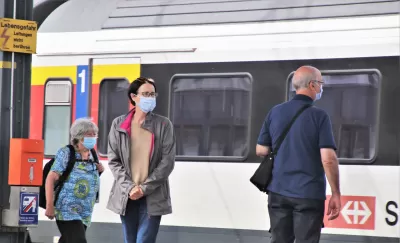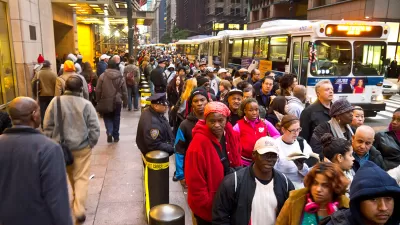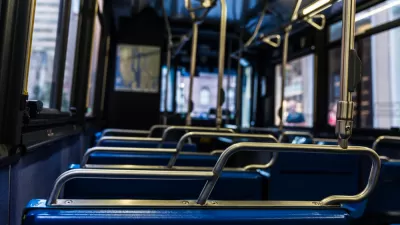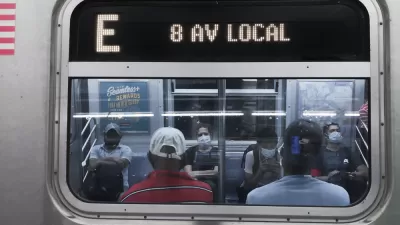Almost a year into the devastating effects of the COVID-19 pandemic, the Urban Institute assesses what we've learned about transportation equity—and what these lessons mean for the future.

In a recent webinar hosted by the Urban Institute, a panel of city and community leaders discussed transportation equity and the barriers and opportunities highlighted by the pandemic. While transit agencies across the country have made steep service cuts, it has become painfully obvious that the people most hurt by reduced service are the essential workers—many low-income and BIPOC—who rely on public transit for their livelihood. Transit cuts also hurt the elderly and people with disabilities, who face increased barriers in finding safe, accessible, and affordable transportation. The panelists agreed that disinvestment in public transit is shortsighted and dangerous, as rolling back the budget cuts will be difficult to do later. After the pandemic, communities will need long-term plans for improved commutes and safe, accessible transit.
Christina Plerhoples Stacy and Christopher Davis highlight the four main lessons that emerged from the discussion. The webinar presented the Institute's new transportation equity data tool and hosted a panel discussion about potential solutions to transportation inequities. The big takeaways:
- Prioritizing roads and highways over public transit perpetuates the negative impacts of structurally racist policies.
- Reducing funding for equitable transportation directly affects essential workers, who depend on public transit more than other groups.
- Funding structures affect how equitable transit systems are.
- Early community engagement matters for planning and implementing policies that provide services to underserved communities.
FULL STORY: Four Lessons for Cities to Help Advance Equitable Transportation during the COVID-19 Pandemic and Beyond

Alabama: Trump Terminates Settlements for Black Communities Harmed By Raw Sewage
Trump deemed the landmark civil rights agreement “illegal DEI and environmental justice policy.”

Study: Maui’s Plan to Convert Vacation Rentals to Long-Term Housing Could Cause Nearly $1 Billion Economic Loss
The plan would reduce visitor accommodation by 25% resulting in 1,900 jobs lost.

Planetizen Federal Action Tracker
A weekly monitor of how Trump’s orders and actions are impacting planners and planning in America.

Waymo Gets Permission to Map SF’s Market Street
If allowed to operate on the traffic-restricted street, Waymo’s autonomous taxis would have a leg up over ride-hailing competitors — and counter the city’s efforts to grow bike and pedestrian on the thoroughfare.

Parklet Symposium Highlights the Success of Shared Spaces
Parklets got a boost during the Covid-19 pandemic, when the concept was translated to outdoor dining programs that offered restaurants a lifeline during the shutdown.

Federal Homelessness Agency Places Entire Staff on Leave
The U.S. Interagency Council on Homelessness is the only federal agency dedicated to preventing and ending homelessness.
Urban Design for Planners 1: Software Tools
This six-course series explores essential urban design concepts using open source software and equips planners with the tools they need to participate fully in the urban design process.
Planning for Universal Design
Learn the tools for implementing Universal Design in planning regulations.
Caltrans
Smith Gee Studio
Institute for Housing and Urban Development Studies (IHS)
City of Grandview
Harvard GSD Executive Education
Toledo-Lucas County Plan Commissions
Salt Lake City
NYU Wagner Graduate School of Public Service





























